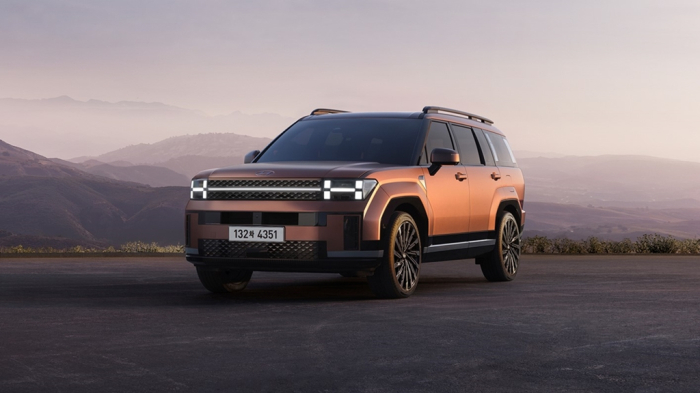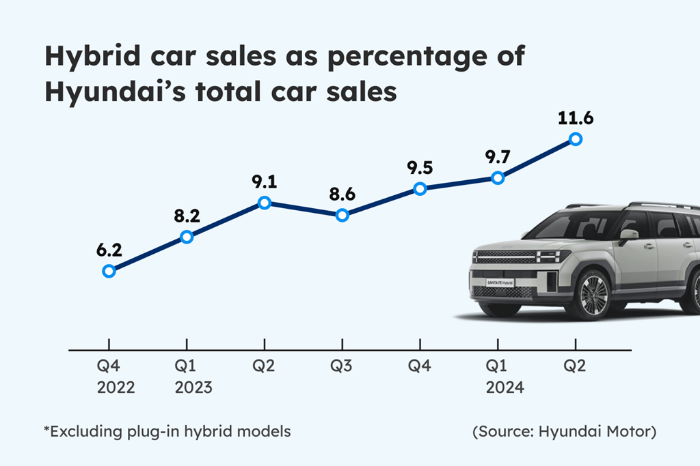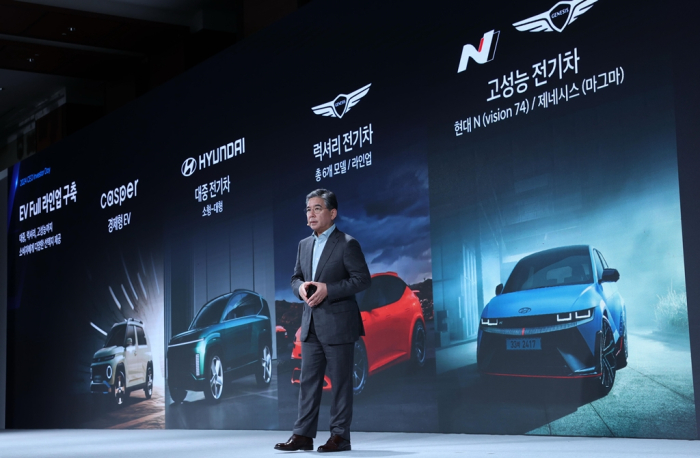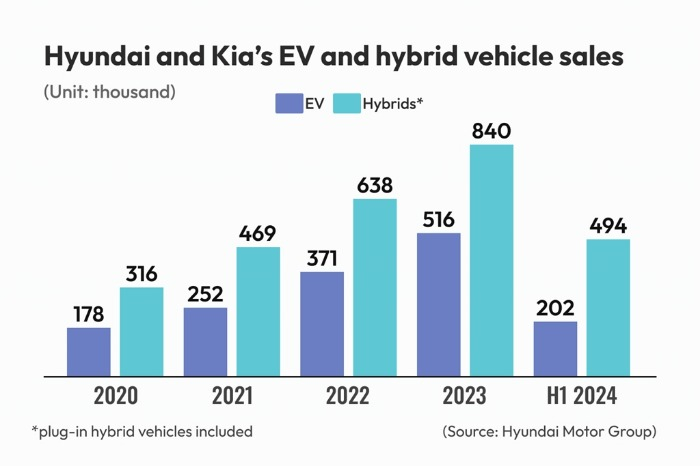Corporate strategy
Hyundai Motor cuts 2030 sales goals as EV chasm likely protracted
Reflecting its new assessment of the stark reality, Hyundai hopes to fill the gap with hybrids and pricey SUVs
By Sep 19, 2024 (Gmt+09:00)
3
Min read
Most Read
Samsung steps up AR race with advanced microdisplay for smart glasses


When in S. Korea, it’s a ritual: Foreigners make stops at CU, GS25, 7-Eleven


Maybe Happy Ending: A robot love story that rewrote Broadway playbook


NPS yet to schedule external manager selection; PE firms’ fundraising woes deepen


US auto parts tariffs take effect; Korea avoids heavy hit



South Korean top automaker Hyundai Motor Co. has slashed its long-term vehicle sales targets by 6% as it prepares for aggressive marketing by Chinese rivals and a protracted EV uptake slowdown, known as the EV chasm.
The flagship unit of Hyundai Motor Group now expects 5.55 million global vehicle sales in 2030, down from its earlier target of 5.9 million units, The Korea Economic Daily learned on Thursday.
Hyundai’s sister firm Kia Corp. is maintaining its 2030 sales goal at 4.3 million units – the same as announced last year – for similar reasons.
Industry sources said the two largest Korean automakers’ sales target adjustments reflect their assessment of the stark reality that auto sales, particularly of EVs, will face some challenging years amid a global economic slowdown.
“Hyundai wants to be realistic that an EV slowdown could be protracted through 2030. The company has turned more conservative,” said one of the sources.

Hyundai is among several global automakers that recently adjusted their sales and profit expectations downward.
Swedish automaker Volvo recently scrapped its vision to go fully electric by 2030. It said its hybrid vehicles will account for 90% of its total annual sales by 2030 while internal combustion engine cars will take up the rest.
German automaker BMW said last week that it lowered its forecast for this year’s operating profit margin to 6-7% from the previous 8-10%. Its return on equity (ROE) target has also been revised down to 11-13% from 15-20%.
Industry data shows the global EV demand will reach 18.4 million units next year, down 4% from an earlier forecast of 19.2 million units.
The Korean duo also faces growing challenges from Chinese automakers, which controlled 17.1% of the global vehicle market last year, up from 10.5% in 2019.

HYBRIDS TO FILL THE GAP
During Hyundai’s CEO Investor Day last month, Chief Executive Chang Jae-hoon said Hyundai plans to double its hybrid vehicle lineup to 14 models and develop longer-range electric vehicles to overcome a prolonged EV sales slowdown.
Kia plans to raise its hybrid lineup to nine models by 2028 from the current six.
Hyundai Motor aims to sell 3.3 million eco-friendly vehicles, including EVs, hybrids and hydrogen fuel cell vehicles, annually by 2030, accounting for about 60% of its total 20930 sales target.
Kia aims to sell 2.38 million eco-friendly vehicles annually by 2030, or 55% of its total sales.
Hyundai and Kia’s 2030 EV sales goals have been set at 2 million units and 1.6 million units, respectively – the same as announced last year.
The Korean duo’s hybrid sales are already strong, particularly in the US.

Together with increased sales of hybrids, Hyundai also plans to develop a next-generation powertrain, known as a range extender, for pickup trucks and sport utility vehicles to cope with slowing EV sales.
According to industry sources, the automotive group has begun a project to develop a fuel-based auxiliary power unit that extends the range of a battery electric vehicle (BEV) by running an electric generator that charges the vehicle’s battery.
Range-extender vehicles, also referred to as extended-range electric vehicles (EREVs), range-extended electric vehicles (REEVs), or range-extended battery-electric vehicles (BEVx), will include mid-size SUVs under the Genesis brand, sources said.
Hyundai said it is also strengthening its hydrogen ecosystem to achieve zero emissions across the life cycle of cars, from production to driving and eventually to scrapping, by 2045.
Write to Jae-Fu Kim and Jung-Eun Shin at hu@hankyung.com
In-Soo Nam edited this article.
More to Read
-
 AutomobilesHyundai, Kia post record August US sales, driven by hybrids, EVs
AutomobilesHyundai, Kia post record August US sales, driven by hybrids, EVsSep 05, 2024 (Gmt+09:00)
3 Min read -
 Electric vehiclesToyota chairman to visit Seoul, discuss hydrogen cars with Hyundai’s Chung
Electric vehiclesToyota chairman to visit Seoul, discuss hydrogen cars with Hyundai’s ChungSep 02, 2024 (Gmt+09:00)
4 Min read -
 Electric vehiclesHyundai to develop EREV powertrain for electric pickup, Santa Fe, GV70
Electric vehiclesHyundai to develop EREV powertrain for electric pickup, Santa Fe, GV70Aug 13, 2024 (Gmt+09:00)
4 Min read -
 AutomobilesHyundai Tucson HEV posts record US sales as hybrids catch on
AutomobilesHyundai Tucson HEV posts record US sales as hybrids catch onAug 02, 2024 (Gmt+09:00)
2 Min read -

Comment 0
LOG IN


